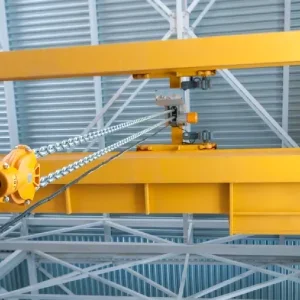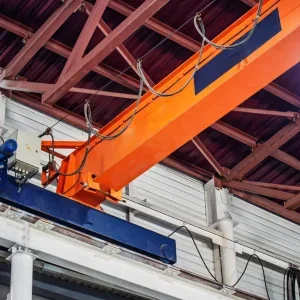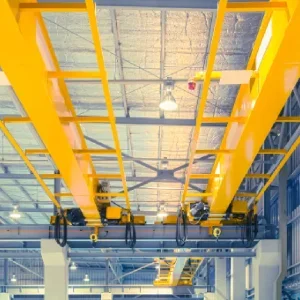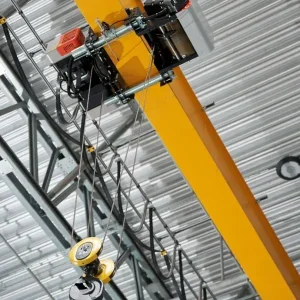The takeover was the “natural conclusion” of the long-term relationship between LTM and GIS, says David King, acting CEO at LTM following the completion of the deal in mid-June and the retirement of former LTM CEO John Jones.
“Some of the team at LTM used to work for the previous GIS UK agent 20 years ago, so the relationship goes back a long way,” explains King. “LTM was set up in 2004 to focus on supplying hoists into the entertainment sector, and in 2008, because of our previous experience, we started working with GIS again.
“GIS also wanted to supply the entertainment sector, and LTM were able to help them to make their products more suitable for those applications.”
LTM has since then been distributing GIS products in the UK market, including electric chain hoists, control systems, material handling equipment, light crane systems, and associated components.
The move will give the LTM team opportunities to develop, says King—and the uncertain UK market may yet provide new opportunities too.
“It’s all going well so far,” says King. “Being part of the GIS group will give us not just stability but more opportunities and chances to progress for the employees. The people at LTM want to push forward and make their mark. They have a lot of knowledge on how to make products suitable for operators, so being part of the GIS family will allow us to share that knowledge within the wider organisation—it is a win-win all round.
“In the UK market, as with any period of uncertainty it feels sometimes that companies are currently sitting on potential investments until after the Brexit deal is finalised. Sadly, whether we like it or not, any uncertainty will always make people put their foot on the brake.
“Like during any period of uncertainty, we have to look for the opportunities and looking forward, once the future relationship is established in the short term we might release a backlog of investments in the projects that have been put on hold. And, longer term, Brexit along with other global drivers—automation, rising prices, environmental concerns and the circular economy—might provide the right set of circumstances to encourage additional manufacturing in Britain, which would increase demand for hoists and associated equipment.
“The UK is part of a global economy, and prices are rising across the world. This might be a good chance to manufacture closer to home, and potentially look at developing new technologies.
“One way or another, things will change— but we’ll still need construction of railways, roads, and so forth, which require hoists and innovative solutions to the handling of loads. “Demand this year has been steady—it’s not been a record year, but I’ve seen it worse. There haven’t been so many of the bigger projects that can turn a standard year into something more prosperous but that can change very quickly, you just have to keep on looking for the opportunities and focus on what you are best at.”






